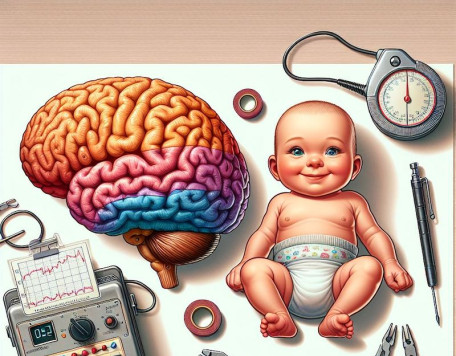© Pint of Science, 2025. All rights reserved.
Join us for a night of discovery! Dive into the ethical dilemma of using prize draws in research, the secrets behind mysterious phone calls, and the role of sleep in adolescent well-being. Our talks bridge science and daily life, offering insights for everyone. A night not to miss for those curious about the science shaping our lives. Please note, some discussions may touch on sensitive subjects.
Prize Draws for Research Participants - A Dodgy Deal?
Simon Paul Jenkins
(Associate Professor, University of Warwick)
Researchers often use incentives to recruit people to take part in their studies. A common incentive is entry into a prize draw, where you’re entered into a lottery and you might win a prize, but you also might lose and get nothing. My ethical analysis finds that if we care about having proper informed consent when people take part in these studies, we should be wary of enticing people using prize draws, because cognitive biases interfere with our ability to make proper decisions about lottery-type deals.
Who's on the Line? The Mystery of Incoming Calls
Mahshid Delavar
(Research Fellow, University of Warwick)
In our hyper-connected world, incoming phone calls are a ubiquitous part of daily life. But have you ever wondered who's really on the other end of the line? This intriguing talk delves into the enigma of incoming calls, exploring questions like: 1. Caller ID Deception: How often do we trust the display that tells us who's calling? Spoiler alert: it's not always accurate. 2. The Art of Spoofing: Discover the dark art of call spoofing, where scammers manipulate caller IDs to appear as someone else entirely. 3. VoIP Shenanigans: Voice over Internet Protocol (VoIP) calls add another layer of complexity. Who's hiding behind that digital voice? 4. The Curious Case of Robocalls: Uncover the mystery of automated robocalls—why they persist and how they evade detection. 5. Privacy vs. Curiosity: Balancing our desire to know with the need for privacy—when should we answer, and when should we let it ring? Join us as we unravel the secrets of incoming calls, demystify the unknown voices, and explore the fascinating world of telecommunications. Whether you're a tech enthusiast, a skeptic, or just curious, this talk promises to keep you on the edge of your seat.
The Role of Sleep in the Development of Self-Harm: Understanding the Mechanisms so we can Break the Cycle
Michaela Pawley
(PhD Researcher, University of Warwick)
Getting insufficient and poor sleep is characteristic of adolescence and associated with several mental health problems. Self-harm typically begins during adolescence, further highlighting their vulnerability to psychological distress. Research into understanding the risk and protective factors has uncovered the relevance of sleep, however how and why sleep and self-harm is associated remains unclear. Investigating the long-term effects of specific sleep problems on self-harm using large datasets enables insight into these associations, which may be key to breaking this destructive cycle.
Map data © OpenStreetMap contributors.
Other Twisted Barrel events
2025-05-19
Stirring Senses, Sparking Change: From Visual Flavours to Entrepreneurial Futures
Twisted Barrel
Unit 11, FarGo Village, Coventry & Warwickshire, CV1 5ED, United Kingdom
2025-05-21
Brain, Birth & Beyond: Changing the Future of Recovery
Twisted Barrel
Unit 11, FarGo Village, Coventry & Warwickshire, CV1 5ED, United Kingdom




